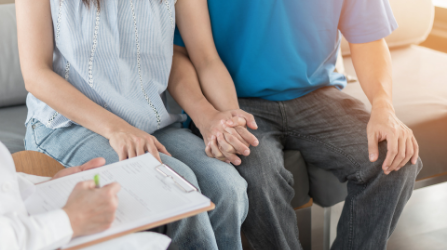After cancer treatment
Although you may feel ready to get on with life after treatment, it is also common to have mixed feelings. You may have days when you feel worried or less positive about the future. It can take time to recover physically and emotionally. You have been through a lot, so it is completely normal to feel this way. This section has information about sex and relationships after treatment has finished, for young people affected by cancer.

If your body is different
Cancer and cancer treatment can change your appearance or how you feel about your body. These changes can be short‑term or long-term. Some changes are more obvious, such as scars or weight changes. Others cannot be seen but can have a big effect on you, such as changes to fertility or reduced sex drive.
If you find it hard to cope with changes to your body, give yourself time and be kind to yourself. You may find it gets easier. But if something about your appearance or body is stopping you having relationships or sex, you may want more advice and support.
Building your confidence can have a positive effect. Try to think of things that make you feel good about yourself. Set yourself goals that you know you can meet. You can work towards bigger goals by breaking them into smaller steps. For example, if you are worried about going out in public, you could start by having some close friends round to watch a film. If you feel comfortable with that, next time you could do something at someone else’s house. Eventually, you might feel confident enough to go out somewhere quiet for a short time with friends.
We have more information about coping with body changes in our section on body image and cancer.
If sex is difficult
Physical and emotional changes after cancer treatment can affect your confidence or your ability to have sex. This could affect your relationship, or make you worried about starting a new relationship. Some changes can be long‑term. Some changes only happen months or years after treatment.
If you find sex is difficult or painful, it is important to get the right support and information. There are often ways to improve your sex life. It can be embarrassing to talk about it, but your healthcare team understand the issues and can help you.
What about starting a family?
If your fertility is affected after cancer treatment, you may be able to have treatment to help you start a family. Our section on fertility for young people affected by cancer explains more about this.
The right time to try for a baby depends on when you finished treatment and the type of cancer and treatment you had. Your cancer doctor can give you advice. Your doctor may advise that you wait for a time before trying for a baby. This gives your body time to recover.
For women
Some types of cancer treatment can cause the menopause to happen earlier than usual. If you have been told this is likely, ask your doctor for advice about pregnancy as soon as you can. They may advise you to try for a baby sooner to give you the best chance of getting pregnant.
Cancer treatment sometimes makes pregnancy more complicated. You may need extra support from your healthcare team during pregnancy if you have had:
- surgery or radiotherapy to the pelvic area (the area between the hips and below the belly button)
- cancer treatment that has affected the heart or kidneys.
It is important that you tell your healthcare team about your cancer treatment, even if it was many years ago. This is so they can give you the right care during pregnancy.
Contraception
Even if there is a risk that cancer treatment has affected your fertility, you and a partner may still be able to get pregnant. If you are not ready to start a family, use contraception. We have
more information about safe sex and cancer treatment.


